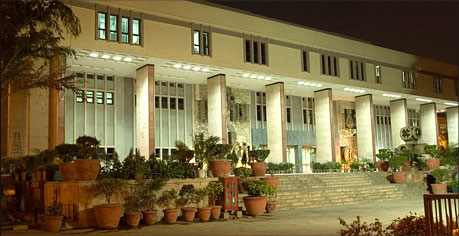Delhi HC issues notice on Google’s plea against previous order classifying it as a social media intermediary

The Delhi High Court on Wednesday issued notice on an appeal filed by Google against a single judge bench order which had cast certain obligations which would wrongly classify Google search as a social media intermediary.
The appeal was being heard by the division bench comprising Chief Justice DN Patel and Justice Jyoti Singh against the order passed by Justice Anup Jairam Bhambhani on a plea by a woman who claimed that her social media accounts had the requisite ‘privacy settings’ activated and yet these accounts were compromised, and her photographs and images were taken and placed on the pornographic website.
The petitioner further contented that even though her photographs and images were otherwise unobjectionable, by placing the same on a pornographic website, the errant respondents had ex-facie committed the offence of publishing and transmitting material that appeals to the prurient interests, and which has the effect of tending to deprave and corrupt persons, who are likely to see the photographs, which is an offence under section 67 of the Information Technology Act 2000.
The Single bench judge classified Google as “social media intermediary” and directed it to remove the post globally within 24 hours.
Senior Advocate Harish Salve appearing for Google argued that Google is a search engine and not a social media intermediary, and sought interim protection from coercive action on failure to remove posts since it did fall under the definition of Social Media Intermediary under the IT Rules.
Salve further argued that content that may be objectionable in India may not be objectionable worldwide, so an order directing removal of content globally was not required. It was further argued that the Single Judge had passed “template directions” which would set bad precedent. Moreover, the complainant could have resolved the issue by approaching them.
The Single Judge bench order told Google and other search engines such as Yahoo, Bing and DuckDuckGo
“ to globally de-index and de-reference from their search results the offending content as identified by its Web URL and Image URL, including de-indexing and de-referencing all concerned web-pages, sub-pages or sub-directories on which the offending content is found, forthwith and in any event within 24 hours of receipt of a copy of this judgment along with requisite information from the Investigating Officer as directed below;
A further direction is issued to the search engines Google Search, Yahoo Search, Microsoft Bing, DuckDuckGo, to endeavour to use automated tools, to proactively identify and globally disable access to any content which is exactly identical to the offending content, that may appear on any other websites/online platforms”.
